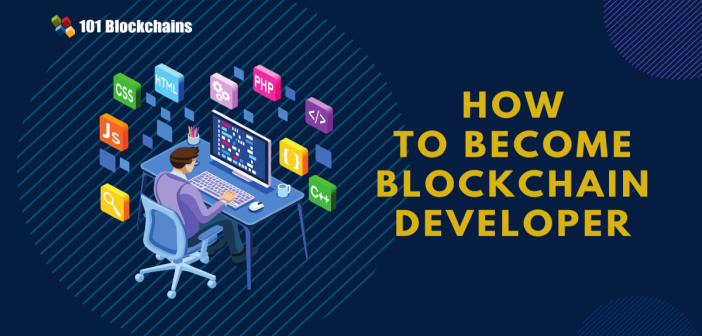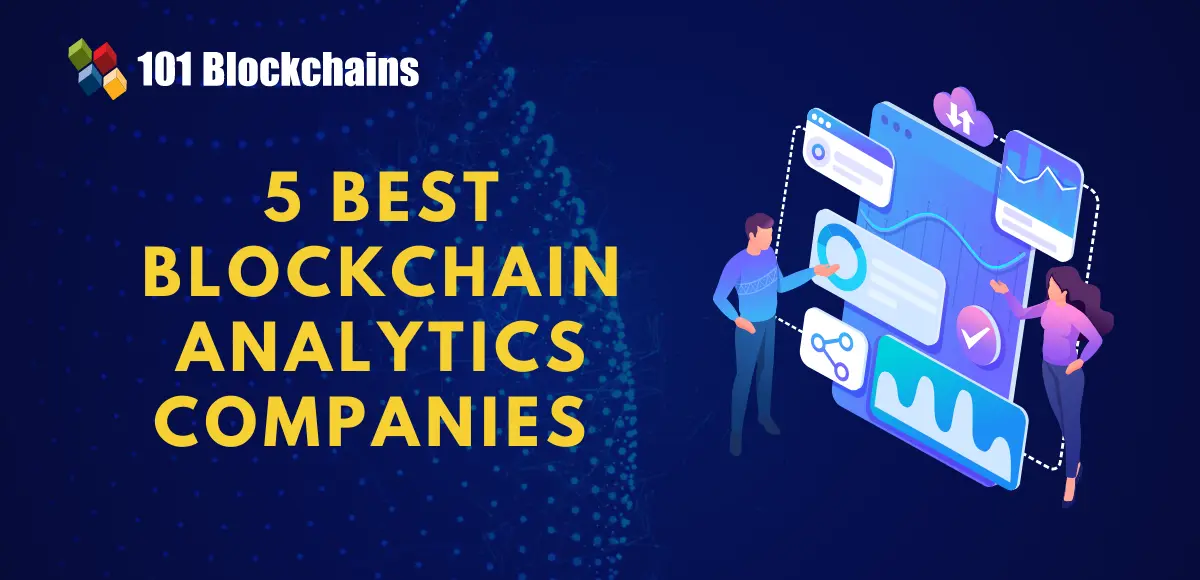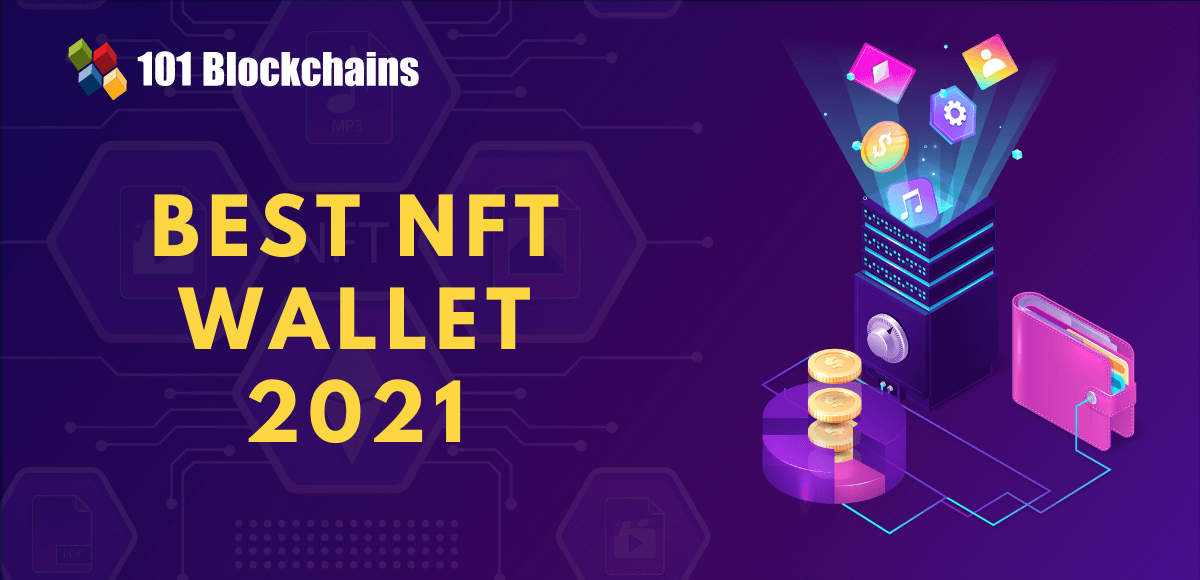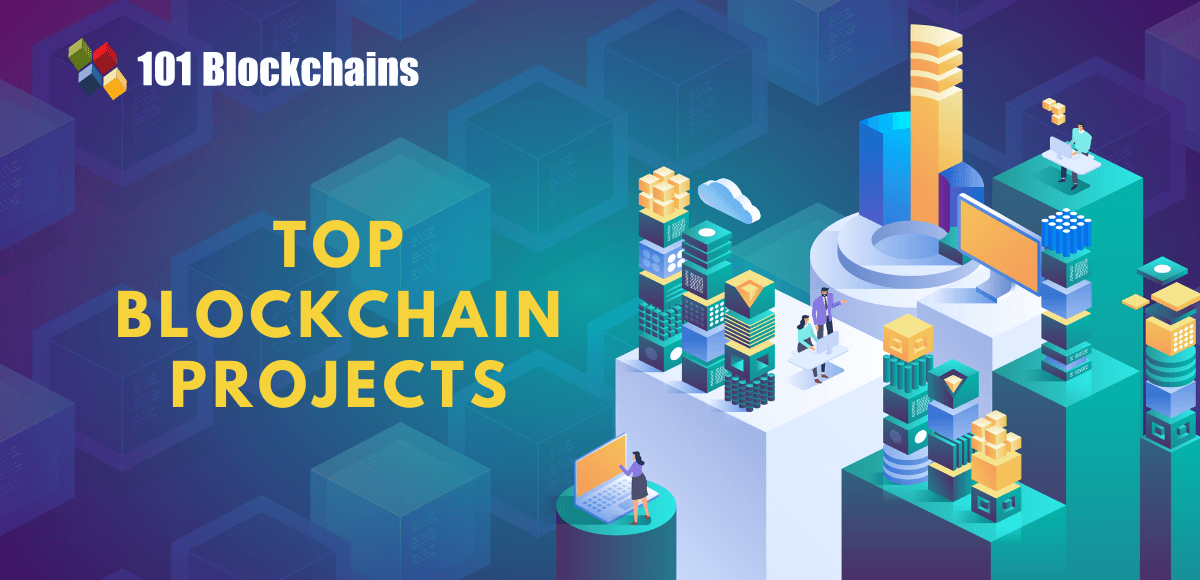Learn how blockchain truly works, master key definitions, and uncover what makes smart contracts so "smart." Dive into the fundamentals, gain valuable insights, and start your blockchain journey today!

- Reviews
Gwyneth Iredale
- on January 21, 2021
How to Become Blockchain Developer?
A decade ago, nobody would have probably thought about blockchain reaching its present stage and influencing a wide assortment of industries. Blockchain technology applications have been responsible for introducing large-scale changes across various industries. Therefore, many candidates in the world of IT are considering available prospects to become blockchain developer.
Over the years, it has been considered as one of the offshoots of cryptocurrency while it served as the foundation of all cryptocurrencies, starting with Bitcoin. In general terms, you can think of Bitcoin as one of the applications based on blockchain technology. Therefore, businesses and governments all over the world are exploring the potential of blockchain for improving their operations and services.
As a result, you can witness various listings for jobs on many platforms recently. However, is it easy to pursue the career role of a blockchain developer? The following discussion tries to solve all the questions that a beginner faces before deciding to become a blockchain developer. Readers can explore the roles and responsibilities of blockchain developers, career benefits, and the best practices recommended by experts to land up with your dream job.
Enroll now in the Certified Web3 Blockchain Developer Certification to learn about the best practices for writing, testing, and deploying Solidity smart contracts for web3 apps
Why Should I Look for Blockchain Developer Job Roles?
Before proceeding, it is important to find more about the popularity of blockchain. Over the course of the last decade, decentralized technologies have found their way into the mainstream technological landscape. Prior to 2009, the advancements in the field of decentralized technologies did not have any specific direction.
However, the advent of Bitcoin brought the spotlight on blockchain technology. In the present times, blockchain has been successfully implemented for tasks such as the management of shipping systems, supply chain monitoring, jewelry tracking, and the creation of digital identities.
Furthermore, the global blockchain market would reach a total value of more than $20 billion by the year 2025. Furthermore, the participation of giants such as Samsung and IBM in blockchain tech innovation is also a positive sign for the blockchain industry. As a result, one could expect a formidable growth in the significance of blockchain for enterprise operations.
Are you ready to take your career to the next level? Join our Premium plan now and get access to exclusive web3 & blockchain job listings on 101 Blockchains.
Career Benefits of the Blockchain Developer Job Role
The popularity of blockchain translates directly into the need of enterprises for expert professionals in various blockchain-based job roles. So, it is easy to find advertisements for a blockchain developer job on popular professional networking and recruitment platforms today.
According to the Emerging Jobs Report of LinkedIn, blockchain developers topped the list of in-demand jobs while posing an expected growth rate of 33%.
In addition, the popular freelancing platform, Upwork, also presented blockchain as one of the fastest-growing skills among 5000 other skills in its index. The average blockchain developer salary is also one of the prominent factors that can draw you towards the job.
According to ZipRecruiter, the annual average salary for a junior-level blockchain developer is around $120,748. Furthermore, blockchain developers could earn more than $150,000 with the right amount of experience.
Therefore, you have all the reasons to build a blockchain career as a developer and boost your career. So, do you know the way ahead? This is where you may feel a bit frustrated, especially when you have to navigate multiple blog posts and articles. You can avoid all the trouble of spending hours on your computer, trying to find easy ways to become a blockchain developer.
On the other hand, you can start with a strategic plan, which begins by reflecting on the roles of a blockchain developer. An understanding of the responsibilities of blockchain developers in different roles can help in finding out whether you are ready for the job or not.
Build your identity as a certified blockchain expert with 101 Blockchains’ Blockchain Certifications designed to provide enhanced career prospects.
What do I Have to do as a Blockchain Developer?
When you try to find the answers to what is a blockchain developer, you are most likely to settle for someone who builds blockchain solutions. However, you need something more than this generic definition to understand its significance.
First of all, you need to know the notable blockchain developer job roles that you can explore presently. Generally, you can find core blockchain developers and blockchain software developers as the two most common roles. However, you can also find opportunities as smart-contract engineers or developers with blockchain development expertise.
Core Blockchain Developer
The core blockchain developers are liable to carry the following responsibilities,
- Development and maintenance of decentralized applications
- Supervision and planning of blockchain projects
- Consultation of companies utilizing distributed ledger technologies.
- Understanding the needs of a company and development of apps in alignment with the needs
Core blockchain developers could also take on the role of project managers and address their fundamental responsibilities. In addition, these developers have to organize training for team members and employees as project managers.
Blockchain Software Developer
Therefore, a core blockchain developer basically provides the foundation on which you can develop blockchain solutions. So, who will develop the blockchain solutions? This is where the second option comes into the picture to build a career as a blockchain developer. A blockchain software developer or backend developer is responsible for creating the web and mobile variants of decentralized apps. Some of the prominent responsibilities in the role of blockchain backend developer or blockchain software developer include,
- Design and development of APIs to facilitate blockchain integration
- Execution of performance testing and deployment
- Collection of requirements and operating in unison with other designers and developers for software design
- The facility of technical support
Want to know how you can land a job as a blockchain developer? Read here How To Land A Blockchain Developer Job now!
Smart Contract Developer
The role of smart contracts in the blockchain ecosystem has gained prominent attention in recent times. Therefore, many enterprises are looking for developers with capabilities for integrating smart contracts into blockchain solutions. As a matter of fact, the rising demand for smart contract developers offers another potential reason to become a blockchain developer. Smart contract developers or engineers must have comprehensive fluency in smart-contract languages such as Go, Solidity, or Python. The primary responsibilities in the role of smart-contract engineers include,
- Smart contract audits and development
- Consultation and interaction with users and buyers
- Review and understanding business flow and security for ensuring nil loopholes in smart contracts completely
- Execution of end-to-end business process testing
Now, you can clearly observe the flexibility and variation of the different roles you can pursue as blockchain developers. You will have to work on developing innovative solutions to new, emerging business challenges. The solutions developed by you should be tailored for better command and control alongside offering better integrity.
Also, you have to take care of complex analysis procedures, computer software debugging, design, testing, and development for specific product hardware or different technical service lines of businesses. You also have to take care of the integration of operating architecture and selecting computer systems.
Therefore, it is clearly evident that aspiring blockchain developers have to face challenges in understanding the technicalities for the implementation of decentralized cryptosystems. Most important of all, you have to look for skills beyond the conventional skillset for an IT developer in the blockchain. As a result, you have to turn your attention towards the specialized skills required for a blockchain developer job.
Checkout our new certification and how it can build your career in blockchain development, Read here: Announcement – The Certified Web3 Blockchain Developer Certification Launched
Essential Skills Required for Becoming Blockchain Developer
Speaking of skills, you need to know about the essential prerequisites required for pursuing the role of a blockchain developer. Also, you must fulfill the minimum educational qualification requirements.
At the most fundamental level, you need at least a bachelor’s degree in information security or computer science for blockchain developer jobs. Subsequently, you need to establish fundamental knowledge in a wide range of technical concepts such as the following.
1. Data Structures
Data structures are one of the foremost requirements that come to mind when you think of blockchain developer job roles. These are highly essential instruments for navigating through the complexities of blockchain. Distributed ledger works as a network of various replicated databases, with information stored in blocks.
Also, you must have the required knowledge of general data structures such as graphs, binary search trees, linked lists, and hash maps.
2. Cryptography
The next important concern for aspiring blockchain developers refers to cryptography, which is basically the foundation stone for blockchain. The Bitcoin blockchain implements public-key cryptography for creating hash functions and digital signatures.
You can face certain setbacks in cryptography if you are not fluent in mathematics. Some of the most common topics that you should consider in the case of cryptography include cryptographic hash functions, message integrity, block ciphers, and authenticated encryption.
3. Distributed Systems and Networking
Candidates trying to build a blockchain career in development should also develop a promising impression of the working of distributed ledgers. In addition, you must also develop an in-depth understanding of peer-to-peer networking, including a wide range of topics such as routing and network topologies.
Furthermore, aspiring blockchain developers must also have basic knowledge regarding the Byzantine fault-tolerant consensus mechanism. It is a prominent security feature associated with blockchain for easier and flexible recording and exchange of information.
4. Economy of Cryptocurrency
Candidates who want to find the best blockchain developer jobs near them should also understand the economic structures around cryptocurrencies. Aspiring blockchain developers should develop a better understanding of game theory, which serves as a suitable mathematical framework for modeling scenarios with existing conflicts of interest.
5. Decentralized Applications
The major work of a blockchain developer would revolve around decentralized apps or dApps. If you want to become blockchain developer, then you must understand how dApps are developed on blockchains. Among the many notable dApps development platforms, you can find Hyperledger, Ethereum, and EOS as the top options.
6. Smart Contracts
The generation of blockchain developers would have to deal largely with smart contracts. Many blockchain applications are integrating smart contracts for ensuring better transaction integrity. Smart contracts are capable of introducing a new benchmark in the implementation of contracts and business agreements. The automatic and impartial enforcement of smart contracts takes away the need to depend on intermediaries.
Although smart contracts have provided a simpler approach to establish trust in transactions, they are becoming more complex gradually. Therefore, blockchain developers also need technical skills for proper optimization and auditing of smart contracts.
Prepare yourself for the next blockchain developer interview with these Top 15 Blockchain Developer Interview Questions and Answers
Best Practices to Start Career as a Blockchain Developer
The information presented till now clearly showcases all the things you need to know about a career as a blockchain developer. However, you can move ahead in your journey on the right path ahead only with the practices recommended by experts. Let us take a look at some of the best practices to start a blockchain career as a developer as follows,
-
Know the True Purpose of Blockchain
The foremost issue with any aspiring blockchain developer is the lack of clarity regarding the purpose of blockchain. Many people confuse blockchain technology for cryptocurrencies such as Bitcoin. However, it is important to know that blockchain was used to facilitate the decentralized ledger technology used by Bitcoin. So, you should take an in-depth review of the world of cryptocurrencies and understand their relationship with blockchain technology.
-
Improve Your Fluency in Programming
The next important recommendation for becoming a blockchain developer points out to the development of fluency in programming. The aspirants should get their hands dirty with various programming languages such as Python, SQL, and JavaScript. Subsequently, you could try out different platforms to hone your hands-on experience in blockchain development.
-
Register for Blockchain Certifications and Courses
Finally, the most crucial best practice recommended for candidates to become a blockchain developer points out blockchain certification and training. Blockchain is still struggling to achieve maturity, and there are many platforms offering blockchain education and research seamlessly.
For example, you can choose the 101 Blockchains portal as the best platform for your career objectives. 101 Blockchains offers the Certified Enterprise Blockchain Professional (CEBP) certification that can help you land up blockchain developer jobs easily. Furthermore, you can also explore a wide range of other blockchain-related training courses on 101 Blockchains for strengthening your skills.
Start learning Blockchain with World’s first Blockchain Career Paths with quality resources tailored by industry experts Now!
Final Words
On a concluding note, you can clearly note that the average blockchain developer salary is not the only positive aspect of the career of a blockchain developer. At the same time, you can also notice the comprehensive set of skills required to become blockchain developer. Readers can start enrolling on 101 Blockchains to develop their fundamental knowledge about blockchain through different training courses.
Once you have cleared the fundamentals, you can move towards professional certifications such as Certified Enterprises Blockchains Professional to achieve your career goals. Most important of all, 101 Blockchains brings in years of industry expertise along with strategic, practical guidance for all learners. Go ahead and grab your opportunity right now!
*Disclaimer: The article should not be taken as, and is not intended to provide any investment advice. Claims made in this article do not constitute investment advice and should not be taken as such. 101 Blockchains shall not be responsible for any loss sustained by any person who relies on this article. Do your own research!






